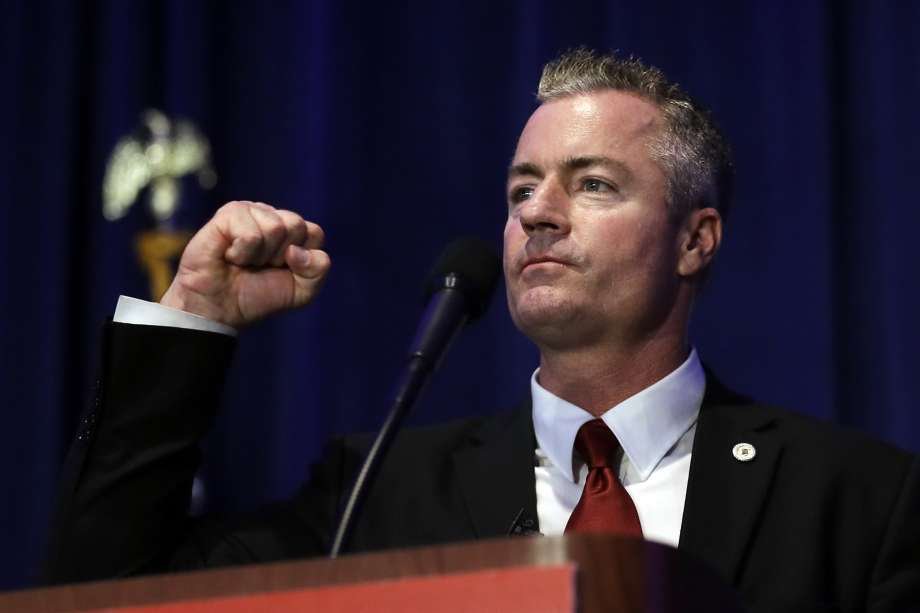
60th District Republican Candidate Bill Essayli (billessayli.com)
#MeToo Movement Becomes Fringe Strategy for Republican Campaigns
The Me Too Movement is an Unconventional Republican Talking Point
By Sean Brown, October 23, 2018 6:30 am
As the #MeToo movement turns a year old, some California district candidates are using the issue as a campaign strategy to attack their opponent. Interestingly enough, it’s the Republicans who are attempting to they the #MeToo movement to their advantage. The strategy comes on the heels of a grueling year in the State Capitol where about a half dozen members of the Legislature were accused of sexual misconduct.
In a new campaign ad in the 60th Assembly district, the Republican candidate, former Assistant U.S. Attorney, Bill Essayli claims that his Democratic opponent, incumbent Sabrina Cervantes, took money from “sexual harassers.” Essayli, says he’s “incredibly proud of my work as a prosecutor protecting vulnerable victims in Riverside County. In our campaign’s newest ad, my former colleague and victims advocate Yolanda Soto talks about my fight for victims.” In the ad, Yolanda says, “Sabrina Cervantes claims to care about women, but she took $40,000 from sexual harassers in Sacramento. She was profiting from sexual predators, while Bill was convicting them.”
I'm incredibly proud of my work as a prosecutor protecting vulnerable victims in Riverside County. In our campaign's newest ad, my former colleague and victims advocate Yolanda Soto talks about my fight for victims. pic.twitter.com/46lIFv2Whh
— Bill Essayli (@BillEssayli) October 8, 2018
The 60th district, which encompasses the northwestern Riverside County communities of Corona, Eastvale, Jurupa Valley, Norco and parts of the City of Riverside, is already a contentious race. So much so that at one point Cervantes’ dad was caught on security camera footage taking Essayli’s campaign flier off of a resident’s lawn and replacing it with hers. While Democrats have a lead in the district’s voter registration, the 60th is considered one of the most competitive races and one that the Republicans think they can pick up.
In the 65th Assembly district of Orange County, educator and Republican challenger, Alexandria Coronado claims in a campaign ad website that Democrat incumbent Sharon Quirk-Silva has a “scary record on sex crimes.” On the website, Coronado also claims that the Teacher’s Union donated to Quirk-Silva’s campaign after her vote to “protect abusive teachers,” referring to Quirk-Silva’s vote against a legislative proposal that would “allow any student that had been sexually abused by a teacher the right to testify,” citing as a source AB 375 amendment vote, 5/29/13.
In the 8th Assembly district of Sacramento, small business owner and Republican challenger, Melinda Avey says that Democratic incumbent Ken Cooley “has a 10:1 money advantage but are still calling in reinforcements to shut me up. They obviously don’t know me.” In www.melindaavey.com, Avey claims that Cooley, Assembly Rules Committee Chair, “quietly refused to refer the first piece of #MeToo legislation to a legislative committee for consideration – effectively killing it.” She says that, AB 2032 was “common sense legislation” that would have opened the books on legislative records “regarding harassment, discrimination, or other misconduct complaints made against a Member of the legislature or a high-level employee.” The information would be available only if the complaint was deemed true or well founded.
Yet to be determined is how these Republican ads will play out with voters, especially in districts that lean Democrat. However, the #MeToo movement did gain traction with the Governor as lawmakers sent him bills in attempts to address what was happening in their own house.
In response, Governor Brown signed a number of bills into law, a trio of which focused on sexual harassment and sexual assault.
SB 1343 by Senator Mitchell (D-Los Angeles) focused on sexual harassment in the workplace. “The problem of sexual harassment in the workplace has always been prevalent, but it has come to light in recent times thanks to high profile cases in Hollywood, Sacramento, Washington DC, and other statehouses,” said the Senator after the signature of her bill.
Current law requires employers with 50 or more employees to offer a minimum of two hours of training and education regarding sexual harassment and abusive conduct every two years. SB 1343 instead reduces the sexual harassment training requirement threshold to employers with five or more employees by Jan. 1, 2020.
The Senator pointed out that “The prevalence of sexual harassment in the workplace has taken center stage following the #MeToo movement. In the Legislature, we have experienced our own set of challenges to review and address issues with our policies and procedures around this issue. We established a joint-subcommittee to hear from experts and have learned that the legislature needs to focus on culture change, adopting strong policies, procedures, and training. As the co-chair of this joint-subcommittee, I am committed to ensuring that not only the Legislature begins to take steps to change our culture, but also the state as a whole.”
AB 1619 by Assemblyman Berman (D-Palo Alto) extends the statute of limitations for an adult to bring a civil action for recovery of damages suffered as a result of sexual assault from the current two year statute to ten years. The author pointed out that the #Me Too and Time’s Up movements have brought awareness to incidents of sexual violence, many of which occurred years ago and are no longer eligible for legal recourse due to the fact that the statute of limitations has expired. The member pointed out that “As women and men across the country share their experiences of sexual assault – often years later – it is clear that significant time is needed to recover and overcome the many practical obstacles that prevent sexual assault survivors from civil recourse.”
The Association of California Sexual Assault Forensic Examiners, the sponsors of the bill, expressed “sincere gratitude to Governor Brown for signing AB 1619”and noted that recovery of sexual assault “is not a linear process,” as it may take many years. This new law will provide additional time to seek remedy.
AB 2302, by Assemblywoman Baker (R-Dublin), will also extend the statute of limitations in cases involving the failure to report an incident of sexual assault known or reasonably suspected by a mandated reporter from one year to five years. Assemblywoman Baker said the law will “ensure any mandated reporter who fails to report sexual assault of a child can be held accountable for failing to report and protect that child.”
- McCarthy Signals That He’d Support Border Barrier Other than Wall - February 6, 2019
- DCCC Adds Nunes to Its Early Target List - February 6, 2019
- Gavin Newsom Places Ads in Key 2020 States - January 24, 2019




